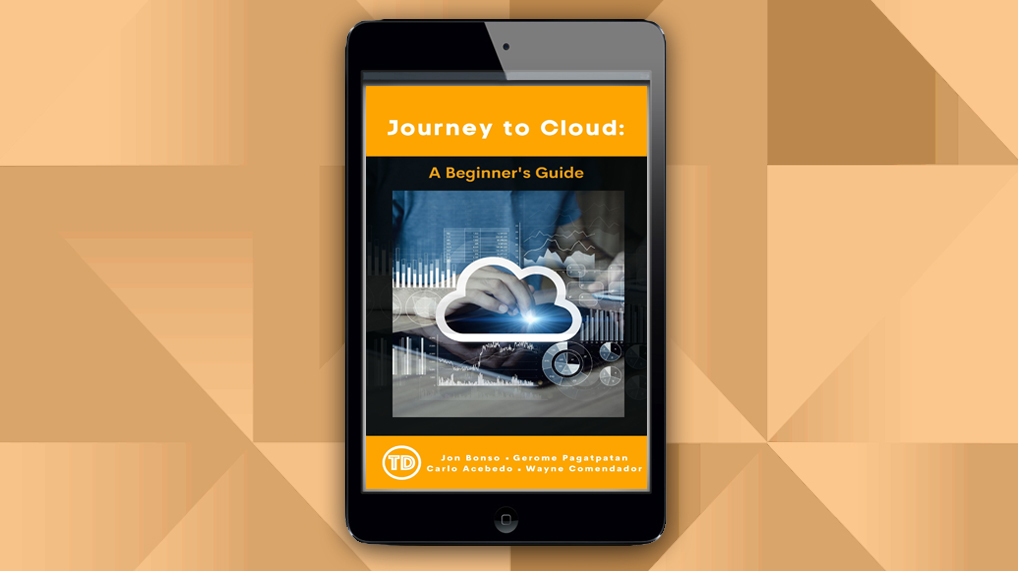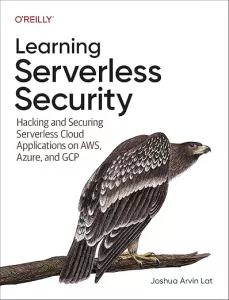Last updated on August 29, 2025
This is the last part of our Introduction to Cloud Computing blog series. In this article, we’ll give some interview tips to help you land a job and build a fruitful career in cloud computing.
The average time for a job interview lasts around 30-45 minutes. And within this limited time-frame, you must leave an impressive mark and good impression to your prospective employer. We will clear off the soft skills for now as you can find many of them on the Internet and instead focus on the technical matters that will help you have an excellent interview experience to get your dream job in the cloud computing field.
Have A General Knowledge On Cloud Computing
Although the questions’ complexity will depend a lot on the position you are applying for, you must still have a solid foundation on the general concepts of cloud computing. You should expect basic questions like:
“What is Cloud Computing?“
“What Are The Benefits Of Cloud Computing?“
“What is the difference between Public and Private Cloud?“
If you are applying for a more technical role like a Solutions Architect, then you should prepare yourself on explaining cloud architectures. Start by researching the most common cloud architectural patterns and techniques. I’ll give you one good example; you can start by familiarizing yourself with the three-tier architecture pattern, which is popular among companies. Learn the appropriate cloud services that can be applied to this type of architecture. You should be comfortable reading cloud architecture diagrams as this kind of skill is expected of you. It’s also ideal that you know the difference between high availability and fault tolerance.
The same strategy applies regardless of the job position you are applying for. First, find the most common practices in your line of work. Then, learn the relevant cloud services and techniques that you can use to perform the work required. If there are specific technologies or software listed on your job description, focus on them, and find as much information as possible. Make time for gaining hands-on experience to ready you for real-world scenario questions. If your current experience is insufficient, you should still be able to explain the concepts at a general high-level overview.
Show Your Proficiency On Your Chosen Cloud Platform
Have an adequate understanding of the core cloud services and their differences. Depending on the cloud platform, your employer will test you on how well you know specific services (especially the commonly used ones). What are the services used for computing? What about storage? Are there different types of storage? If yes, then what are they, and which services could be used to support them? – these are just some of the questions that you should anticipate when going to an interview.
For example, you might get asked to tell the difference between block, file, and object storage and the appropriate services for them. Just try listing possible questions as you can and prepare an answer for each of them. There is a chance that you won’t be asked about questions that you have put together, but would you dare risk that chance? I would prefer not to, and I highly suggest you do the same. Remember that failure to plan is planning to fail.
Know Cloud Terminologies
The cloud is rich in jargon, and while it may seem impossible for you to know them all, you must be aware of the commonly used terms in the field of cloud computing. You don’t want to end up having awkward conversations where your employer will have to explain to you terminologies that you are not familiar with.
The following are some of the usual cloud terminologies that can help you prepare better for a job interview:
IaaS – Infrastructure as a Service
PaaS – Platform as a Service
SaaS – Software as a Service
Private Cloud
Public Cloud
Hybrid Cloud
You don’t have to deep dive into these terminologies. Just have a basic understanding of them in terms of their definition and function. Also, if you have enough time, it wouldn’t hurt to know their differences and how they are used in a real-world setting.
Highlight Your Skill And Experience
Not all interviews are perfect. Worry not if you can’t correctly find the answer to a question or don’t have the same experience being asked. The best workaround for that kind of scenario is to figure out the root problem of the question. Then, after identifying the main problem, you could proceed by sharing your experience that you’ve undertaken before that would’ve solved the same problem nonetheless. You could also say things like “I don’t have any experience using that service before, but if I were to solve that problem, I would do this and do that.” This will show your ingenuity in solving practical problems.
For example, you might get asked to design an application using a cloud-native NoSQL database. Say, you have used MongoDB in your projects before, and your employer is interested in how you will use DynamoDB. You don’t have any practical experience with it yet, but you are aware of its concepts and how it is used. One thing you can do is to relate your previous experience to the given scenario and explain how you will redesign the data structure if you’ll be using DynamoDB.
Although there is no wrong in admitting what you don’t know, you’ll have a higher chance of passing the interview if you find a way to answer in this manner. Your future employer will highly appreciate this kind of response instead of responding with a tight-lipped smile.
Final Thoughts
In today’s ever-changing business climate, most in-demand jobs right now require knowledge in cloud computing. AWS, Azure, and GCP are the three major providers that offer this platform to help businesses scale globally and save on operating costs. With just a click of a button, you can set up your own compute and storage resources for your applications. It eliminates the need for businesses to allocate upfront capital in setting up their physical infrastructure, saving them valuable time and money.
According to Gartner’s forecast, the market for public cloud will grow exponentially for the coming years as more companies migrate their operations to the Cloud. However, this kind of movement is not possible without the support of cloud computing skills. Because believe it or not, enterprises today are facing a large talent shortage needed to modernize their operations. As reported by Forbes – data shows that 63% of U.S. organizations anticipate the IT skills gap to widen, and 59% expect this talent shortage to continue in the next two years. That is why companies like Amazon have been hosting programs to train a cloud-ready workforce. Cloud certifications are consistently among the top-paying IT certifications in the world and you can earn an average annual salary of $150,000. If you’re planning to learn cloud computing then now is the best time to do it.
If you’re now ready to take this challenge, check the resources in the Tutorials Dojo site and always remember that haste makes waste. Don’t rush and take your time when reviewing, so you can pass your exam on your first try!
This article is part of our free Journey to Cloud: A Beginner’s Guide eBook. Click here to get a free copy.
Ready to take your learning to the next level? Become a multi-cloud professional by being skilled in AWS, Azure, and Google Cloud Platform. Check out our list of FREE resources here:



















